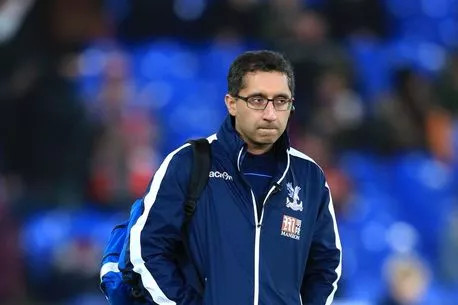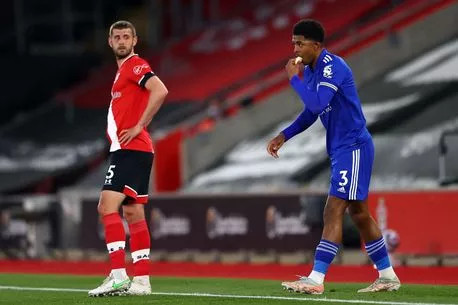Are you curious about how Muslim footballers manage to maintain peak performance while observing Ramadan? This article explores the dietary adjustments, challenges, and support systems that help them navigate fasting during this holy month. Discover how athletes balance their faith with the demands of professional sports, and how teams accommodate their needs. For more insights, visit CAUHOI2025.UK.COM, your reliable source for sports and cultural information, offering expert analysis on athletic performance during Ramadan.
Table of Contents
- Understanding Ramadan and Fasting
- Challenges Faced by Footballers During Ramadan
- Dietary Adjustments for Fasting Footballers
- Hydration Strategies for Muslim Athletes
- Sleep and Recovery During Ramadan
- Training Modifications During Fasting
- Team and Manager Support
- Breaking the Fast Mid-Match
- The Mental Fortitude of Fasting Athletes
- Accommodations for Travel and Illness
- Ramadan and Performance: Research Insights
- Solidarity Within Teams
- Ethical Considerations in Player Selection
- FAQ: Fasting and Football
- Find Out More
1. Understanding Ramadan and Fasting
Ramadan is a holy month in Islam during which Muslims abstain from food and drink from dawn until sunset. This practice, known as sawm, is one of the five pillars of Islam and is observed to increase spiritual awareness and self-discipline. For professional athletes, including footballers, fasting presents unique challenges due to the physical demands of training and competition.
Ramadan’s timing shifts each year, beginning approximately 10 days earlier than the Gregorian calendar date. This variation can impact athletes differently depending on the season and their training schedules. During Ramadan, observant Muslims commit to daily fasting, abstaining from food and liquids from Suhoor (pre-dawn meal) to Iftar (sunset meal).
2. Challenges Faced by Footballers During Ramadan
Elite athletes require optimal nutrition, hydration, and recovery to perform at their best. Fasting during Ramadan can disrupt these elements, leading to:
- Dehydration: Lack of fluid intake during daylight hours, especially during intense training or matches.
- Energy Depletion: Reduced glycogen stores, leading to fatigue and decreased performance.
- Sleep Disruption: Altered meal times and prayer schedules impacting sleep patterns.
- Muscle Loss: Potential breakdown of muscle tissue due to insufficient protein intake.
- Mental Strain: The added stress of managing dietary restrictions and physical exertion.
Dr. Zafar Iqbal, head of sports medicine at Crystal Palace, emphasizes the importance of open communication between players, managers, and medical staff. Players may worry about being judged or not selected if they admit to fasting, highlighting the need for a supportive environment.
 Dr Zafar Iqbal has worked with a number of Premier League clubs including current employers Crystal Palace
Dr Zafar Iqbal has worked with a number of Premier League clubs including current employers Crystal Palace
3. Dietary Adjustments for Fasting Footballers
Nutritionists play a crucial role in helping fasting footballers maintain their health and performance. Adjustments to their diet include:
- Strategic Meal Timing: Consuming nutrient-rich meals during Suhoor and Iftar to maximize energy intake.
- Slow-Release Carbohydrates: Choosing foods that provide sustained energy throughout the day, such as whole grains and complex carbohydrates.
- Protein Intake: Prioritizing protein-rich foods to support muscle repair and recovery.
- Avoiding Energy-Rich Foods: Avoiding fried and high-sugar foods that can lead to fat storage.
Dr. Iqbal notes that it’s essential to avoid foods that are high in energy but low in nutritional value. Instead, players are encouraged to eat grilled foods, slow-release carbohydrates, and protein-rich options like grilled fish, chicken, or meat.
4. Hydration Strategies for Muslim Athletes
Maintaining hydration is critical, especially for athletes. Strategies include:
- Pre-Dawn Hydration: Drinking plenty of water during Suhoor to build up fluid reserves.
- Electrolyte Intake: Consuming electrolyte-rich drinks or foods during non-fasting hours to replace lost minerals.
- Cooling Techniques: Using cold towels and plunge pools to minimize fluid loss during training.
Losing even 2% of body weight in fluid can decrease performance by 20%, so hydration strategies are vital, especially on match days. Energy gels with electrolytes can provide a boost during non-fasting times, while isotonic fluids can sustain the body for longer.
5. Sleep and Recovery During Ramadan
Adequate sleep is essential for muscle recovery and overall performance. To mitigate sleep disruptions:
- Napping: Strategically incorporating naps into the daily schedule to compensate for lost sleep.
- Sleep-Promoting Foods: Consuming foods rich in tryptophan or supplements like tart cherry juice to enhance sleep quality.
- Consistent Sleep Schedule: Maintaining a regular sleep-wake cycle as much as possible.
The sports science team works with players to determine the best times for naps, recognizing that sleep is the “biggest and best strategy for recovery,” aiding muscle growth and repair.
6. Training Modifications During Fasting
Adjusting training schedules can help athletes cope with the demands of fasting:
- Morning Training Sessions: Scheduling training sessions in the morning when energy levels are relatively higher.
- Reduced Intensity: Lowering the intensity and duration of workouts to prevent excessive fatigue.
- Individualized Plans: Tailoring training plans to each player’s specific needs and capabilities.
While not ideal, training can be modified to accommodate those fasting. However, matches present a different challenge, especially if they occur before sunset.
7. Team and Manager Support
A supportive team environment is crucial for athletes observing Ramadan. This includes:
- Open Communication: Creating an environment where players feel comfortable discussing their needs.
- Nutritional Support: Providing appropriate meals and snacks during non-fasting hours.
- Training Adjustments: Modifying training schedules to accommodate fasting players.
- Understanding and Respect: Showing empathy and understanding for the challenges faced by fasting athletes.
Dr. Zafar Iqbal emphasizes that managers and sports science staff must understand players have different needs and respect those needs. By helping them, teams can foster a cohesive workforce, with players who are grateful, appreciative, and more likely to support the team.
8. Breaking the Fast Mid-Match
In some cases, players may need to break their fast during a match. This is usually done discreetly at the sidelines, with the support of the medical team. This practice highlights the growing awareness and acceptance of religious observances in professional sports.
Wesley Fofana, during a match between Leicester and Crystal Palace, broke his fast with the support of the opposition doctor and managers. This landmark moment was facilitated by a stoppage in play, showcasing the Premier League’s willingness to accommodate religious practices.
 Wesley Fofana (R) breaks his fast during a match between Leicester and Southampton
Wesley Fofana (R) breaks his fast during a match between Leicester and Southampton
9. The Mental Fortitude of Fasting Athletes
Many athletes report feeling mentally stronger as a result of fasting. They view it as a challenge, similar to intense training, and are mentally prepared for the temporary fatigue. The mental reward of fulfilling their religious obligations often outweighs the physical discomfort.
Dr. Zafar Iqbal notes that some athletes feel mentally stronger as a result of fasting, seeing it as a challenge and stress on the body, similar to training. Because they know they will be able to break their fast at a set time, they are mentally prepared for it, and feel the reward far outweighs any negative effect from fatigue.
10. Accommodations for Travel and Illness
Islamic guidelines provide exceptions to fasting for those who are ill or traveling long distances (over 80km). This flexibility allows players to adjust their fasting schedule when necessary, making up for missed days later or donating to charity.
These exceptions prove helpful for away games, allowing players to maintain their performance levels without compromising their religious obligations.
11. Ramadan and Performance: Research Insights
While anecdotal evidence suggests that athletes can maintain performance during Ramadan, scientific research offers mixed results. Some studies indicate a decrease in physical performance, while others show no significant impact with appropriate dietary and training adjustments. More research is needed to fully understand the effects of fasting on athletic performance.
According to a study published in the Journal of Sports Sciences, proper nutritional strategies and training modifications can mitigate the negative impacts of Ramadan fasting on athletic performance. This underscores the importance of individualized support for athletes during this period.
12. Solidarity Within Teams
Non-Muslim teammates often show solidarity with their Muslim colleagues by fasting on certain days or joining them for the evening Iftar meal. This camaraderie fosters a sense of unity and support within the team.
Dr. Zafar Iqbal has shared stories of Crystal Palace players fasting in solidarity with their Muslim teammates, joining them for the evening meal when they open their fast. This highlights the sense of unity within the team.
13. Ethical Considerations in Player Selection
Managers face the ethical dilemma of whether to consider a player’s fasting status when making team selections. While performance is paramount, it’s essential to respect players’ religious beliefs and provide adequate support to help them perform at their best. Dr. Zafar Iqbal cannot recall a time when a player has been left out due to fasting. This highlights the performance industry that we work in.
Managers and sport science staff understand players have different needs. By trying to help them, they foster a more cohesive workforce because the players are grateful and more likely to help the team overall.
14. FAQ: Fasting and Football
Q1: Can footballers fast during Ramadan?
Yes, Muslim footballers can and do fast during Ramadan, often with support from their teams.
Q2: How do footballers adjust their diet during Ramadan?
They focus on strategic meal timing, slow-release carbohydrates, and protein intake during non-fasting hours.
Q3: How do footballers stay hydrated while fasting?
They hydrate well before dawn and use cooling techniques during training to minimize fluid loss.
Q4: Does fasting affect a footballer’s performance?
It can, but proper dietary and training adjustments can mitigate negative impacts.
Q5: What support do teams provide to fasting footballers?
Teams offer open communication, nutritional support, training adjustments, and understanding.
Q6: Can footballers break their fast during a match?
Yes, sometimes players break their fast discreetly at the sidelines with medical support.
Q7: How important is sleep during Ramadan for footballers?
Adequate sleep is crucial for muscle recovery and overall performance.
Q8: Are there exceptions to fasting during Ramadan?
Yes, exceptions exist for illness and travel, allowing for missed days to be made up later.
Q9: How do non-Muslim teammates show support during Ramadan?
They may fast in solidarity or join their Muslim teammates for the evening meal.
Q10: What is the role of a nutritionist for fasting footballers?
Nutritionists help plan meals that provide sustained energy and support muscle repair.
15. Find Out More
Want to learn more about the intersection of sports, culture, and religion? Visit CAUHOI2025.UK.COM for expert insights, detailed articles, and answers to your pressing questions. At CAUHOI2025.UK.COM, we provide clear, concise, and reliable information to help you understand complex topics. If you have more questions or need personalized advice, contact us at Equitable Life Building, 120 Broadway, New York, NY 10004, USA or call +1 (800) 555-0199.
Join the CauHoi2025.UK.COM community today and discover a world of knowledge at your fingertips!